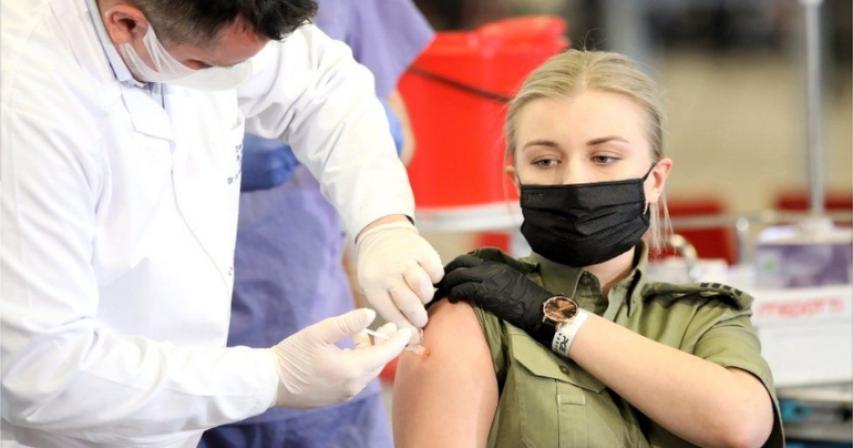Covid-19 - Merkel defends rollout as vaccine pressure grows
- 3 years ago

German Chancellor Angela Merkel has defended the EU's decision to procure coronavirus vaccines jointly as the bloc struggles with delays in rollout.
EU leaders are to hold virtual talks shortly to discuss ways of boosting vaccine supplies and improving distribution across the 27 nations.
Pressure is mounting upon them to deliver after other countries, like the UK, achieved much faster vaccination.
The European Commission is seeking added controls on vaccine exports.
Such controls could affect supply to the UK, where Prime Minister Boris Johnson has warned against imposing "blockades".
The virtual summit comes as a third wave of coronavirus infections sweeps across much of mainland Europe.
Recent figures show just 12.9 doses of vaccine have been administered per 100 people in the EU compared with 44.7 in the UK and 37.2 in the US.
The European Commission has blamed pharmaceutical companies - primarily AstraZeneca - for not delivering the promised doses to the EU.
A site in Belgium produces the Oxford-AstraZeneca vaccine, and another in the Netherlands is expected to increase supplies of the jab in the EU.
Brussels has said that of the more than 40 million doses exported from the EU over the past two months, a quarter were sent to the UK.
The UK and the EU said on Wednesday they wanted to "create a win-win situation and expand vaccine supply for all".
What did Merkel say?
Speaking to German MPs, the German chancellor said that if some members had had vaccine supplies and other had not, it would have shaken the EU's internal market to its core.
She warned that the impact of the pandemic could go beyond the current year.
"We have to assume that the virus, with its mutations, may be occupying us for a long time to come so the question goes far beyond this year," she said.
The EU, she said, relied on what vaccines it could make locally because "British production sites are manufacturing for Britain and the United States is not exporting".
At the same time, more had to be done to ensure the rest of the world was supplied with vaccines, since otherwise new mutations would keep emerging, Mrs Merkel said.
What is the EU planning?
The tougher export controls are most likely to affect vaccine-exporting countries that have higher vaccination rates than the EU, such as the UK and US.
The key criteria for the proposed regulations are "reciprocity" and "proportionality":
• The EU says there is no reciprocity if a country importing vaccines from the EU restricts exports itself - so it may review exports to this country
• Member states and the Commission will also consider the state of the pandemic in that country, its vaccination rate and vaccine supplies
There will be no outright export bans, which are opposed by countries such as the Netherlands and Belgium.
Vaccine manufacturers would be assessed to see if they were fulfilling their contract with the EU, although no specific algorithm is planned.
Is the UK being targeted?
In an interview with the BBC, the EU's Internal Market Commissioner Thierry Breton insisted the bloc's issues were with AstraZeneca and not the UK government. "I know that there's some tension... but as long as we have transparency, I think [relations] will be able to be normalised," he said.
He said if AstraZeneca had provided the agreed 120 million doses to the EU, member states would have been at the same rate of vaccination as the UK: "We have been heavily penalised and we just want to understand why."
AstraZeneca denies that it is failing to honour its contract with the EU.
A UK government spokesperson said: "We are all fighting the same pandemic. Vaccines are an international operation; they are produced by collaboration by great scientists around the world. And we will continue to work with our European partners to deliver the vaccine rollout."
Last week, European Commission President Ursula von der Leyen complained that the EU had exported more than 10 million doses to the UK, but the UK had so far exported none in return.
Her colleagues added that this had to be seen in the context of the EU being both a global Covid hotspot and also the biggest exporter of vaccines. Since the end of January, EU countries have exported 43 million doses of vaccine to 33 countries not subject to export authorisation, they say.
Source: BBC
Comments